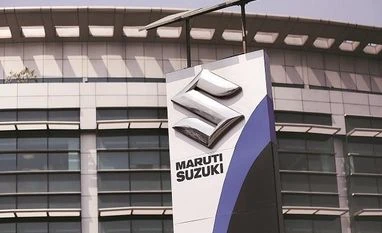Maruti Suzuki India (MSIL) on Wednesday reported a 42 per cent year-on-year (YoY) increase in net profit at Rs 2,670 crore in the quarter ended March 31, 2023, as car sales recovered and supply chain disruptions eased. For the full year (FY23), the company’s bottom line more than doubled to Rs 8,211 crore from a year earlier.
India’s biggest carmaker also announced its plan to set up a new plant to expand its annual capacity by 1 million units. Chairman R C Bhargava, however, told reporters that the company’s board was yet to decide on the location and necessary investment for the plant.
Another plant in Kharkhoda, Haryana, with a proposed capacity of 1 million units, is already under construction. With the board approving one more on Wednesday, the company plans to have a total annual manufacturing capacity of 4.25 million units. Bhargava said the company would not borrow to construct the new plant, but would use its internal resources.
The company had cash reserves of more than Rs 45,000 crore as of April 1, 2023. “The Kharkhoda plant’s construction will be completed ahead of the new plant, wherever it comes up,” he noted.
On investments needed for the new plant, he said, “If the Kharkhoda plant is going to cost X, the new plant will cost slightly more than X, because it will come a bit later. It can’t be very much different.”
MSIL had stated in May 2022 that it would invest about Rs 18,000 crore to set up the Kharkhoda plant. Bhargava said MSIL’s total revenues in FY23 had crossed the landmark Rs 1-trillion mark. “I can’t readily think of many other Indian companies that have done it,” he added.
More From This Section
Total income surged 33 per cent to Rs 1.19 trillion in FY23, while it rose 20.6 per cent to Rs 32,802 crore in the March quarter.
Bhargava said the company could not meet the target of selling more than 2 million cars in the last fiscal year largely due to the semiconductor chip shortage. “In 2023-24 (FY24), the shortage will remain. The kind of improvement we were hoping for has not happened. Q1 of FY24 has been worse as compared to the previous quarter (Q4 of FY23) when it comes to the chip supply. Hopefully, the situation will be better in the next three quarters of FY24,” he added.
He said the company’s loss of production due to chip shortage was about 170,000 units in FY23. “It should be less than 170,000 in FY24 as we are expecting a better supply situation this fiscal year,” he mentioned.
The Maruti chairman said the company had planned a capital expenditure of about Rs 8,000 crore in FY24, as against Rs 6,329 crore in FY23. He said the company would launch a hybrid vehicle this year, and this model would be sourced from Toyota. Since this will be a top-of-the-line vehicle, MSIL does not expect its volumes to be large.
In 2018, the two Japanese companies, Toyota Motor Corp and Suzuki Motor Corp, signed a global agreement that involved sharing and cross-badging of models and technologies.
MSIL’s domestic market share, in terms of volumes, stood at 41.3 per cent in FY23. Bhargava said the company intended to get close to the 50 per cent target, but it was difficult to predict when it would happen.
In FY23, the company witnessed an 8.8 per cent increase in exports, reaching 258,333 units. Bhargava is optimistic that the company’s exports could reach 750,000 units by 2030. He said the sales in FY23 were much better despite multiple headwinds such as the Ukraine-Russia war, rising inflation, and chip shortage.
)